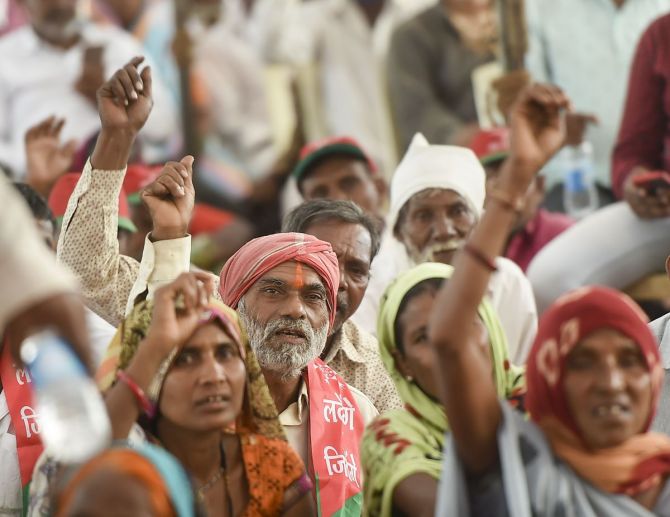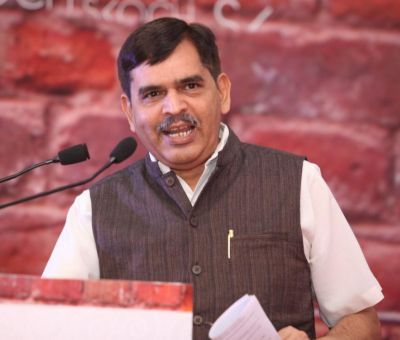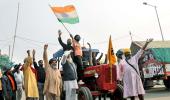'The prime minister in a way defeated the ill-designs of separatist forces.'

The farmers of India, especially those from Punjab and Haryana, have been agitating for a year against three farm bills passed by Parliament last year. On November 19, 2021, Prime Minister Narendra Damodardas Modi announced that the government would repeal the laws.
When the bills were passed, Professor Ashwani Mahajan, co-convenor, of the Rashtriya Swayamsevak Sangh-affiliated Swadeshi Jaagran Manch, had told Rediff.com that certain issues in the bills needed to be addressed.
Professor Mahajan tells Rediff.com's Shobha Warrier what needs to be done now.
The concluding segment of a two-part interview:
The farmers statement says that the repeal also is a unilateral declaration and not a bilateral solution...
The farmers representatives wanted a withdrawal of these laws, and the government has done it. How can you call this a unilateral declaration?
The farmers' leaders said they would continue with the agitation...
I don't find any merit in their argument. They have been fighting against the farm laws and they have been withdrawn.
And you can't trouble the public for something the government has agreed for.
Now, the time is set for discussions with the stakeholders. That will take time. It will not happen tomorrow.
Agriculture in this country has been suffering from the beginning.
As a person who is a critic of globalisation, I will say that after the new economic liberalisation came into being, the difference between the rural and urban income changed from 1:6 to 1:12.5.
In 1971, agriculture used to provide 45% of GDP and in 1991, agriculture was providing 25% of GDP.
Today, it is hardly 15% of GDP.
Not only that, prices of agriculture produce has not increased proportionately.
So, there is a need to change so that farmers should get better deal for their produce.

You mean reforms in agriculture...?
The problem is, we think reforms means FDI and foreign investment. Reforms are reforms. Any improvement is reform.
All the previous governments were doing only lip service to farmers saying we are for farmers, you are our annadata, etc. while what they were doing was against the interests of the farmers.
They wanted to give cheap food grains to people so, their interest was always to give lowest price to the farmers.
When this government came, they were also under pressure from the old bureaucracy, and not ready to increase the MSP to the cost of 50%.
But we have been pressuring the government to increase the MSP and made them realise that it was not inflationary.
Now also, if not for the assembly elections in Punjab and UP, would they have listened to the farmers? The farmers would have continued to sit there protesting...
Even the general public was against it when the agitation prolonged though they felt farmers should get a better deal.
You may agree that the farmers agitation had gone beyond the farmers and many of the separatist forces entered the arena.

Can you justify calling the protesting farmers anti-national?
All the farmers unions are our friends and have working along with the Swadeshi Jaagran Manch for long.
What I am saying is anti-national and separatist forces had entered into the agitation.
That was creating a kind of distortion in the agitation, and going against the interests of the farmers.
But the prime minister followed democratic principles, and in a way defeated the ill-designs of separatist forces.
Thanks to the UP, Punjab elections...
Any action of the government can be linked with the elections as we have an election almost every month!
Whether it is because of election or no election, what the PM has taken is a sane decision, and it should be welcomed by all as it will open new vistas for further talks and reforms in agriculture.
Feature Presentation: Aslam Hunani/Rediff.com










